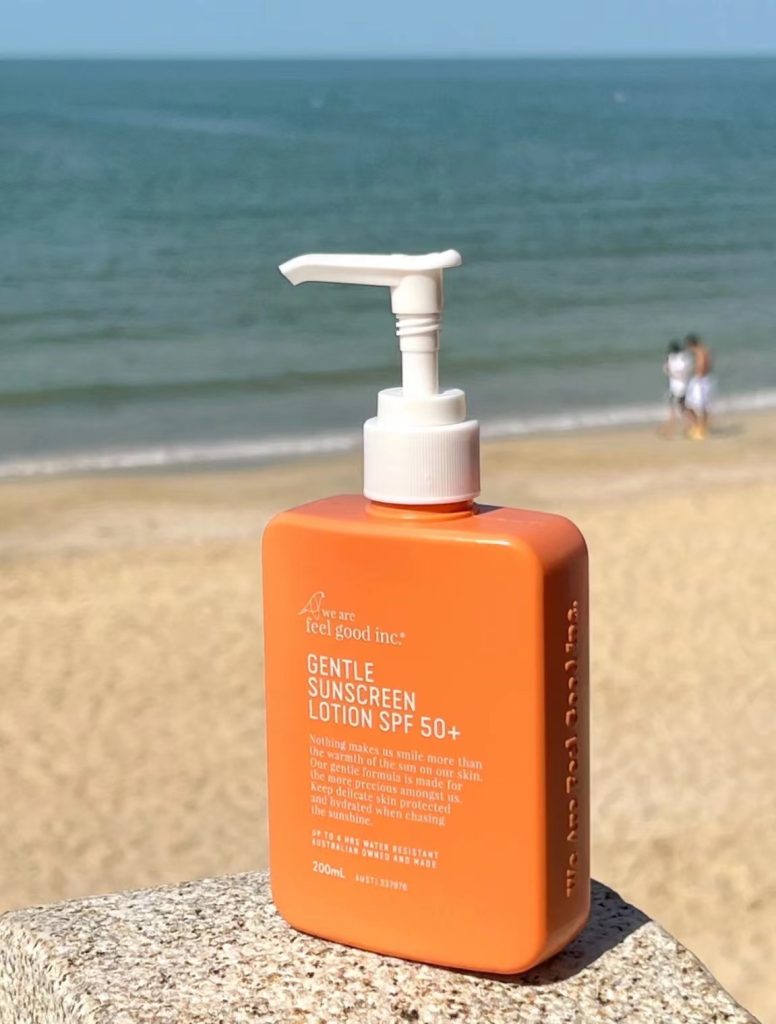The sun, a celestial body that sustains life on Earth, is both a source of delight and potential danger. While it offers warmth, light, and essential Vitamin D, prolonged exposure to the sun’s harmful ultraviolet (UV) rays can cause significant damage to our skin. Sunburns, premature aging, and an increased risk of skin cancer are among the dire consequences of UV radiation. One of the simplest and most effective ways to protect our skin is through the regular application of sunscreen. In this essay, we will explore the importance of sunscreen, its mechanisms of action, and its role in safeguarding our skin and overall health.

Section 1: Understanding the Sun’s Harmful Effects
Before delving into the power of sunscreen, it is crucial to comprehend the detrimental effects of the sun on our skin. The sun emits three types of UV rays: UVA, UVB, and UVC. UVA rays penetrate deep into the skin, causing long-term damage and contributing to premature aging. UVB rays are responsible for sunburns and play a significant role in the development of skin cancer. Although UVC rays are the most dangerous, they are absorbed by the Earth’s atmosphere and do not pose a direct threat.

Section 2: The Mechanisms of Sunscreen
Sunscreen, also known as sunblock, is a topical product that forms a protective barrier on the skin, shielding it from harmful UV radiation. It consists of organic and inorganic compounds that work together to absorb, scatter, or reflect UV rays before they penetrate the skin.
Organic compounds, such as avobenzone and octocrylene, absorb UV radiation, converting it into heat that is then released from the skin. On the other hand, inorganic compounds, like titanium dioxide and zinc oxide, act as physical barriers, reflecting and scattering UV rays away from the skin’s surface.
Modern sunscreens often combine both organic and inorganic ingredients, offering broad-spectrum protection against UVA and UVB rays.

Section 3: The Importance of Regular Sunscreen Application
The power of sunscreen lies in its ability to reduce the risk of various skin conditions caused by excessive sun exposure. Here are some reasons why regular sunscreen application is crucial:
- Prevention of Sunburn: Sunburns are not only painful and uncomfortable but also increase the risk of skin cancer. Sunscreen with a high Sun Protection Factor (SPF) can significantly reduce the likelihood of sunburn.
- Protection against Skin Cancer: Skin cancer is the most common type of cancer globally. Regular use of sunscreen has been proven to lower the risk of developing skin cancer, including melanoma, the most dangerous form of the disease.
- Minimization of Premature Aging: Exposure to UV rays accelerates the aging process, leading to wrinkles, fine lines, and age spots. Sunscreen helps maintain youthful-looking skin by preventing the harmful effects of UV radiation.
- Prevention of Hyperpigmentation: Sunscreen can also aid in preventing hyperpigmentation, which causes dark spots and uneven skin tone, by blocking the formation of melanin triggered by UV exposure.
- Maintaining Skin Health: Sunscreen acts as a protective shield for the skin, preventing damage to skin cells and preserving overall skin health.

Section 4: Sunscreen and Skin Types
Contrary to a common misconception, sunscreen is essential for individuals of all skin types and colors. While people with fair skin are more prone to sunburns, those with darker skin can still suffer from UV-induced damage and an increased risk of skin cancer. Additionally, certain skin conditions, such as rosacea and eczema, can be aggravated by sun exposure, making sunscreen vital for managing these conditions.

Section 5: Choosing the Right Sunscreen
Selecting the appropriate sunscreen can significantly impact its effectiveness. Here are some factors to consider when choosing a sunscreen:
- Broad-Spectrum Protection: Opt for a sunscreen that provides protection against both UVA and UVB rays.
- SPF Rating: Choose a sunscreen with an SPF of 30 or higher for daily use. SPF 50 or higher is recommended for extended outdoor activities.
- Water Resistance: If engaging in water-related activities or heavy sweating, opt for a water-resistant sunscreen to maintain protection.
Conclusion:

In conclusion, the power of sunscreen cannot be underestimated in safeguarding our skin from the damaging effects of the sun. By understanding the risks associated with UV radiation and the mechanisms of sunscreen, we can make informed decisions about the products we use. Regular application of sunscreen, regardless of skin type or color, plays a crucial role in preventing sunburns, premature aging, and skin cancer. Embracing sunscreen as a part of our daily routine is a small yet powerful step toward maintaining healthy and radiant skin for years to come.






